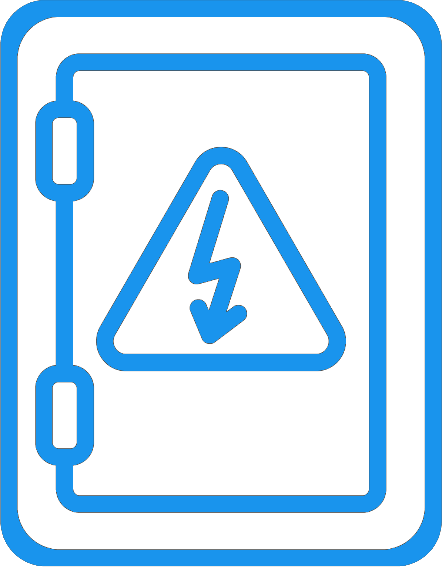The primary objective of a power system study is to ensure the electrical distribution system operates safely and reliably under both normal and fault conditions. These studies are conducted using specialized software tools.
Power System Studies
Power System Studies
The most common studies conducted for facilities

Short Circuit
A short circuit study is an analysis conducted on an electrical power system to determine the magnitude of fault currents that can flow during short circuit conditions, such as line-to-line, line-to-ground, or three-phase faults. This study helps ensure that the system’s protective devices, such as circuit breakers and fuses, are adequately rated to handle fault conditions without damage.

Load Flow
A Load Flow Study, also known as a Power Flow Study, is an essential electrical engineering analysis used to evaluate the steady-state operation of an electrical power system. It helps determine the voltages, currents, real power, reactive power, and power factors at various points in the system under normal and contingency conditions.

Protection Coordination Study
A protective coordination study is an analysis of an electrical power system to ensure that protective devices, such as circuit breakers, fuses, and relays, operate in a properly timed sequence to isolate faults while minimizing system disruption. The goal is to enhance system reliability, prevent unnecessary outages, and protect equipment from damage.

Arc Flash
An Arc Flash Study is an electrical engineering assessment used to evaluate the risk of an arc flash event in an electrical system. It helps determine the potential incident energy levels, necessary safety measures, and required personal protective equipment (PPE) to protect workers from electrical hazards.

Harmonics
A Harmonics Study is an electrical engineering assessment used to evaluate harmonic distortion in a power system. It helps identify and mitigate issues caused by nonlinear loads that introduce harmonics, which can negatively impact electrical equipment and power quality.

Motor Starting
A Motor Starting Study is an electrical engineering assessment used to evaluate the impact of starting large motors on a power system. It ensures that motors can start without causing excessive voltage drops, current surges, or system instability that may affect other loads or equipment.
